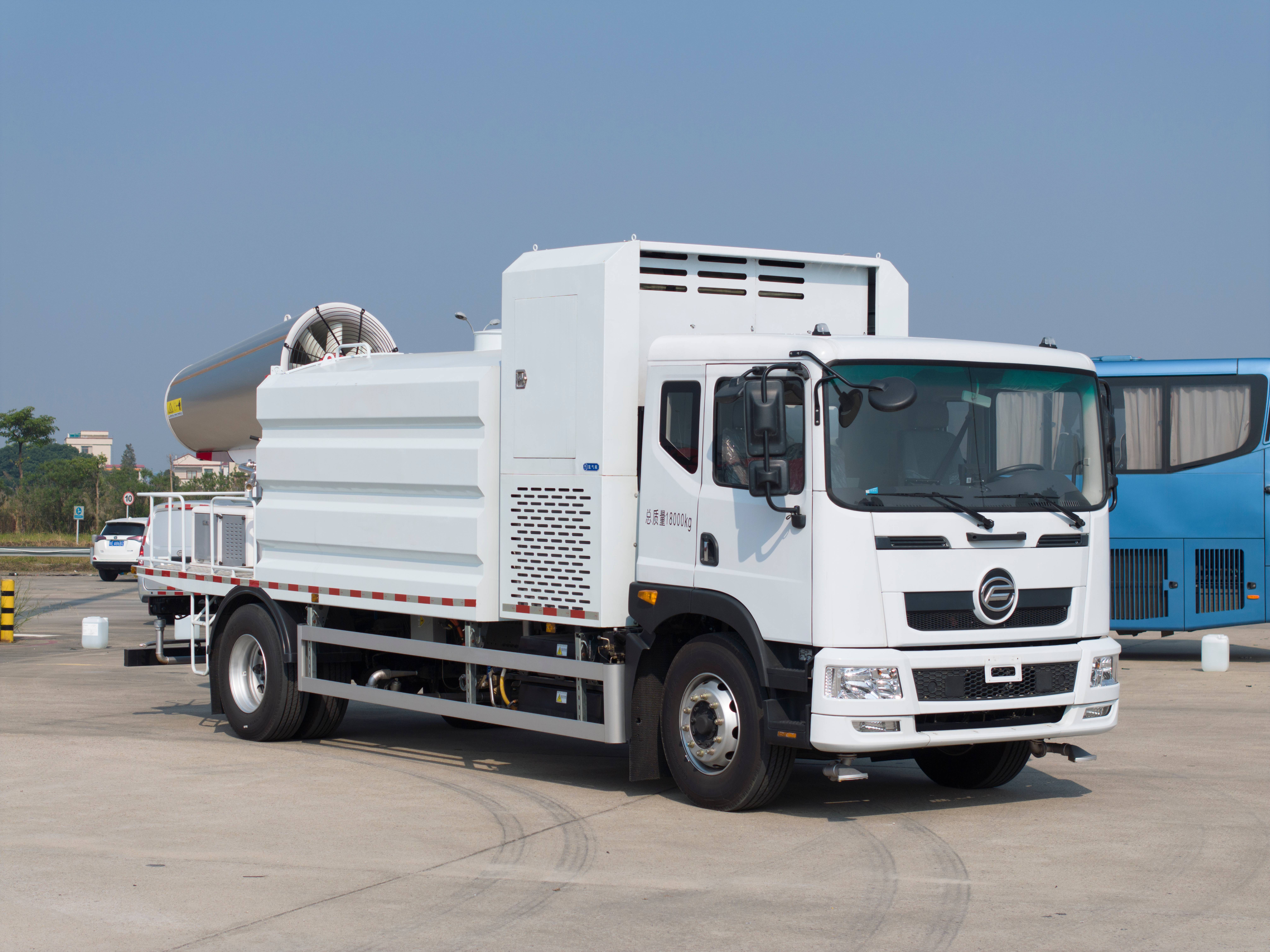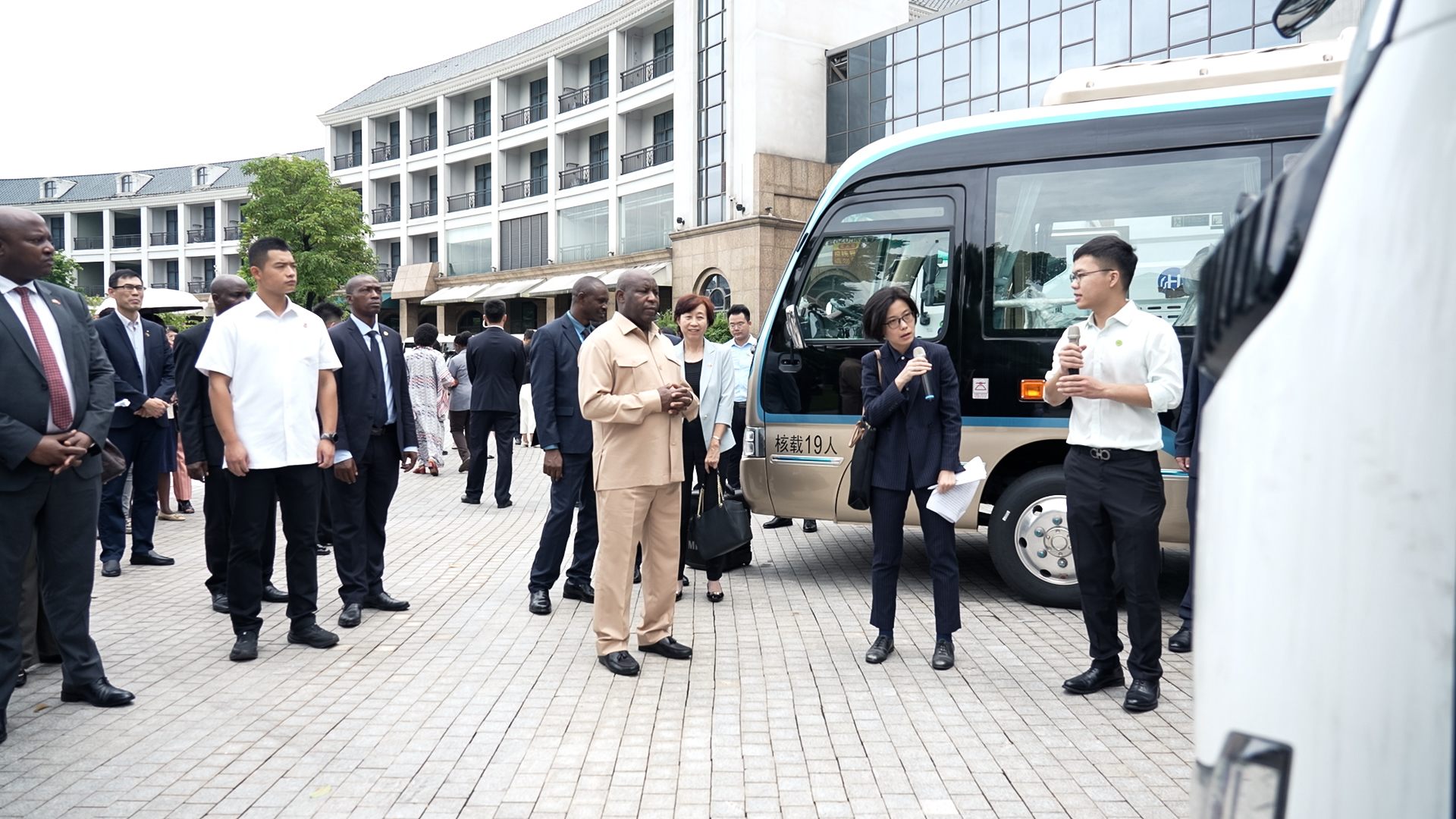Recently, Feichi Technology's 49-ton fuel cell Trailer Tractor successfully completed a green logistics transportation trial operation over a long-distance and cross-regional hydrogen energy highway long-haul route spanning more than 1,200 kilometers from Beijing to Shanghai.
As the first vehicle to explore the Beijing-Shanghai Hydrogen Energy Corridor, Feichi Technology's 49-ton fuel cell Trailer Tractor, equipped with a Huafeng 150kW fuel cell system, boasts a driving range of 600-700 kilometers. It demonstrates continuous and stable operation under various complex conditions, meeting the reliability requirements of the vehicle in harsh environments. During this transportation mission, the reliability and stability of Feichi Technology's fuel cell Trailer Tractor in cross-regional medium- and long-distance logistics scenarios were comprehensively verified. Crossing five major provinces and municipalities including Beijing, Hebei, Shandong, Jiangsu, and Shanghai, the truck leveraged its long driving range, low hydrogen consumption, fast energy replenishment, and strong power to successfully complete this large-scale, long-distance, cross-regional zero-carbon logistics transportation task, marking a solid step forward for Feichi Technology in supporting the construction of the national green transportation network.
"The hydrogen refueling time is similar to that of diesel trucks, and the driving range is much longer than electric heavy-duty trucks. It's very suitable for long-distance use!" The driver responsible for this transportation task frequently praised Feichi Technology's hydrogen fuel cell heavy-duty truck and gave a pertinent evaluation: "The hydrogen fuel cell heavy-duty truck has excellent power performance, convenient operation, low noise, and a very comfortable driving experience. The vehicle runs very smoothly throughout the journey. In addition, the hydrogen fuel cell heavy-duty truck is also equipped with advanced active intelligent safety configurations, ensuring driving safety throughout the journey."
The construction of this new Beijing-Shanghai Hydrogen Energy Highway Corridor route is another successful attempt by Feichi Technology following the completion of the Chengdu-Chongqing and Shenyang-Dalian hydrogen corridors. It not only promotes the coordinated development of the Beijing-Tianjin-Hebei region and the Yangtze River Delta, achieving a green transportation transformation with reduced pollution and carbon emissions in the freight sector, but also lays the foundation for subsequent fuel cell vehicles to transition from regional demonstration operations to cross-regional large-scale operations, forming a replicable and scalable hydrogen energy highway model. As the demonstration city clusters draw to a close, China's fuel cell vehicles are at a critical juncture of transitioning from small-scale demonstration and promotion to large-scale application. Policies across the country to exempt hydrogen vehicles from highway tolls are sending positive signals to the market, and the market demand for cross-regional, long-distance operations is increasing day by day. Facing many challenges in larger-scale commercial applications, Feichi Technology remains market application-oriented and customer-centric, continuously exploring more economically feasible demonstration and promotion models for complete vehicles. To date, Feichi Technology has achieved significant milestone results in promoting cross-regional and large-scale applications of fuel cell vehicles, having successively connected multiple hydrogen energy highway corridors such as Sichuan-Chongqing, Shenyang-Dalian, and Shandong-Jiangsu.
Looking ahead, Feichi Technology will continue to rely on the platform and resources provided by its parent company Meijin Energy to accelerate technological innovation and breakthroughs in fuel cell vehicle products. It will treat the development of the hydrogen energy industry as a demonstration project to achieve the "carbon peaking and carbon neutrality" goals, contributing the "Feichi" force to the green and low-carbon transformation of the transportation industry.
News hot spot







